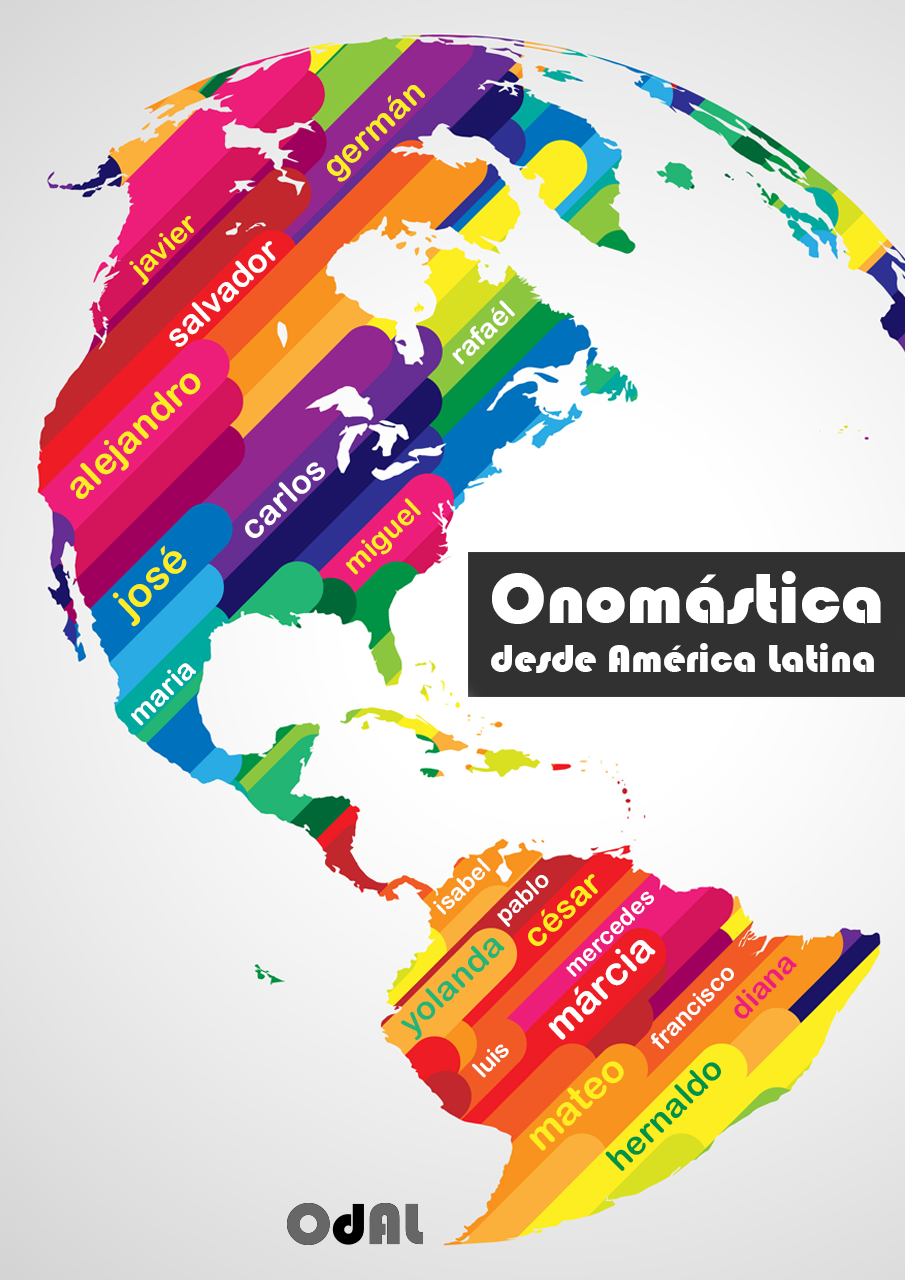Um retrato da antroponímia judaica no Brasil: o que não revelam dados censitários ?
DOI:
https://doi.org/10.48075/odal.v4i1.31619Palavras-chave:
antroponímia, imigração judaica, história, dados censitáriosResumo
Essa pesquisa se inicia com o objetivo de oferecer uma reflexão acerca de como a imigração judaica em território brasileiro tem sido capaz de permear o sistema antroponímico do português com prenomes dessa tradição. Desse modo, pretendemos observar como a antroponímia ligada à tradição judaica tem se conformado à realidade brasileira, através da observação dos usos de prenomes de origem hebraica em registros no Brasil, com base nos dados fornecidos pelo IBGE, na plataforma Nomes no Brasil. O presente artigo se estrutura de seguinte maneira: 1) em um primeiro momento, realizamos uma breve incursão sobre aspectos sócio-históricos da imigração judaica para o Brasil, a fim de que seja possível entender o contexto em que os prenomes dessa tradição vão sendo inseridos na comunidade brasileira; 2) a seguir, destacamos os aspectos metodológicos de como os dados foram levantados e analisados; 3) oferecemos, então, uma observação mais detida dos dados, considerando os prenomes em uso no Brasil, cujo étimo remonta ao hebraico, observando aqueles que se filiam exclusivamente à tradição judaica e aqueles que fazem parte do arcabouço judaico-cristão; 4) por fim, tecemos breves considerações finais que comportam destaques de aspectos do estudo empreendido.
Referências
Alvim, Zuleika. (1989) Imigrantes: a vida privada dos pobres do campo. in Sevcenko, Nicolau (ed.), História da vida privada no Brasil, vol. 3, São Paulo, Companhia das Letras.
Amaral, E.T.R.; Seide, M.S. (2020) Nomes Próprios de pessoa: introdução à antroponímia brasileira. São Paulo, Blucher.
Bassanezi, M. S. C. B. (2013) Crianças a caminho. Imigrantes e filhas de imigrantes nas terras paulistas. Conhecimento histórico e Diálogo social - Anpuh, Natal,. 1-17.
Blay, Eva Alterman. (2009) Gênero, resistência e identidade Imigrantes judeus no Brasil. Tempo Social, revista de sociologia da USP, v. 21, n. 2., 235-258
Decol, René Daniel. (2001) Judeus no Brasil: explorando os dados censitários. Revista Brasileira de Ciências Sociais ,v. 16, n; 46, 147-160
Engelman, Uriah Z. (1961) Sources of Jewish statistics”, in Finkelstein. Louis (ed.), The jews, their history, culture and religion, vol. 2, Londres, Peter Owe.
Grim, Mônica. (1993) Etnicidade e Cultura Política No Brasil: O caso dos imigrantes judeus do Leste Europeu. In: Anais do XVII Encontro Nacional da Anpocs, Caxambú 22-25 de outubro de 1993/ "ST: Os Imigrantes e a Política".
Guérios, Rosário Farani Mansur. (1973) Dicionário Etimológico de Nomes e Sobrenomes. 2 ed. São Paulo: Ave Maria.
Klein, Herbert S. (1989) A integração social e econômica dos imigrantes portugueses no Brasil no fim do século XIX e no século XX. Revista Brasileira de Estudos de População, 6, 2., 17-37.
Lesser, Jeffrey. (1995) O Brasil e a questão judaica. Rio de Janeiro, Imago.
Losch, Richard R. (2017) Todos os Personagens da Bíblia de A à Z. São Paulo, Templus.
Mercer, J. L. V.; Nadalin, S. O. (2008) Um patrimônio étnico: os prenomes de batismo. Topoi, Rio de Janeiro, 9, n. 17, jul/dez., 12-21.
Machado, José Pedro. (2003) Dicionário onomástico etimológico da língua portuguesa. 3 vols. Lisboa: Horizonte/Confluência,
Moraes, Elias Soares de. (2010) Dicionário Etimológico de Nomes Bíblicos. São Paulo, Shalom.
Moya, Jose C. (1998) Cousins and strangers — Spanish immigrants in Buenos Aires, 1850- 1930. Berkeley/Londres/Los Angeles, University of California Press.
Nascentes, Antenor.(1952) Dicionário etimológico da língua portuguesa: nomes próprios. Rio de Janeiro: Francisco Alves.
Patarra, N. L.; Fernandes, D. (2011) Brasil, país de imigração? Revista Internacional de língua portuguesa – Migrações, Lisboa, 24, 65-96.
Patarra, Neide Lopes (org). (1996) Emigração e imigração internacionais no Brasil contemporâneo. São Paulo, FNUAP/Nesur/NEPO.
Seide, M. S. (2013) Motivações contemporâneas para a escolha do antropônimo. Entreletras, Araguaína, 4, n. 2, ago/dez 2013a. 90-101.
Simões Neto, N. A.; Soledade, J. (2021) Nomes Próprios: abordagens linguísticas. Salvador: EDUFBA, v. 1.
Sorj, Bila. (1997) Conversões e casamentos ‘mistos’: a produção de ‘novos judeus’ no Brasil. in Bila Sorj (ed.), Identidades judaicas no Brasil contemporâneo, Rio de Janeiro, Imago.
Udolph, Jurgen. Onomastik: namen und namensbedeutung. Disponível em <http://www.onomastik.com/namenberatung_leipzig.php>. Acessado em 06.7.2023
Downloads
Publicado
Como Citar
Edição
Seção
Licença
Copyright (c) 2023 Juliana Soledade Coelho, Camila de Azevedo Mendes

Este trabalho está licenciado sob uma licença Creative Commons Attribution-NonCommercial-ShareAlike 4.0 International License.
Aviso de Direito Autoral Creative Commons
Política para Periódicos de Acesso Livre
Autores que publicam nesta revista concordam com os seguintes termos:
1. Autores mantém os direitos autorais e concedem à revista o direito de primeira publicação, com o trabalho simultaneamente licenciado sob a Licença Creative Commons Attribution que permite o compartilhamento do trabalho com reconhecimento da autoria e publicação inicial nesta revista.
2. Autores têm autorização para assumir contratos adicionais separadamente, para distribuição não-exclusiva da versão do trabalho publicada nesta revista (ex.: publicar em repositório institucional ou como capítulo de livro), com reconhecimento de autoria e publicação inicial nesta revista.
3. Autores têm permissão e são estimulados a publicar e distribuir seu trabalho online (ex.: em repositórios institucionais ou na sua página pessoal) a qualquer ponto antes ou durante o processo editorial, já que isso pode gerar alterações produtivas, bem como aumentar o impacto e a citação do trabalho publicado (Veja O Efeito do Acesso Livre).
Licença Creative Commons
Esta obra está licenciada com uma Licença Creative Commons Atribuição-NãoComercial-CompartilhaIgual 4.0 Internacional, o que permite compartilhar, copiar, distribuir, exibir, reproduzir, a totalidade ou partes desde que não tenha objetivo comercial e sejam citados os autores e a fonte.

